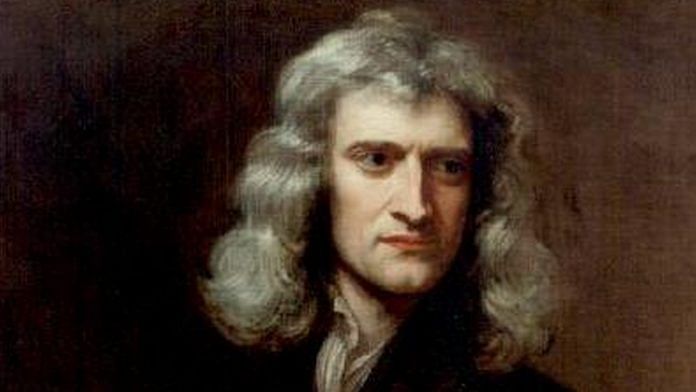New Delhi: Isaac Newton’s formula to describe momentum has now been used by researchers to predict if a non-violent political movement will be successful or not.
In his work Principia, Newton had in 1687 for the first time described that an object’s momentum is the product of it mass and velocity, or P=MV.
Researchers from Harvard University in the US and London’s Brunel University have shown that the same formula can help activists involved in non-violent movements assess their power.
“As we’ve seen recently in Sudan and Algeria, you only need to mobilise a small number of people to effect sweeping political change,” said Margherita Belgioioso, a lecturer of international relations and international security at Brunel University.
“In both those instances, about one million people — only about 2.5 per cent of the population — were mobilised for non-violent protests, and yet both were effective in driving leadership change,” Belgioioso said in a statement.
She said the important thing in those movements was not just how many people were mobilised, but how often they were mobilised.
“They may have been small in number, but they gathered often — they generated momentum,” she added.
Sudan has been in a state of political turmoil ever since the Army ousted veteran leader Omar al-Bashir in April this year. Earlier this month, Sudan’s ruling generals and protesting leaders reached an agreement to usher in a new transitional government, The Guardian reported.
Algeria, too, has witnessed continuous protests calling for government reforms as the military has been openly ruling the country after President Abdelaziz Bouteflika stepped down.
Also read: Do Indians have a scientific temper? Ancient texts reveal we did, way before the West
‘A movement’s momentum determines its success’
The researchers looked at instances of protests, riots, strikes and other forms of unrest in 47 African nations between 1990 and 2014 to determine which factors were crucial to drive “irregular leadership exit”.
They found that while having popular support is important, it is the movement’s ‘momentum’ that determines its success.
“Newton’s theory of momentum serves as a really useful metaphor — if we consider the number of people mobilised as the ‘mass’ and the frequency at which they gather as the ‘velocity’, we can start to quantify how much ‘momentum’ a given movement has,” said Belgioioso, who worked on the study alongside Erica Chenoweth of Harvard University.
“By doing this, we’ve demonstrated a clear positive correlation between a movement’s momentum and its probability of successfully overthrowing a country’s leadership,” she added.
The analysis
Having analysed historical non-violent movements, the researchers said that if one can attract 20 per cent of the national population to 60 events over the course of a week, the probability of “irregular leadership exit” theoretically reaches 100 per cent.
On the other hand, if one can mobilise 10 per cent of the population, then 81 events per week will result in leadership change, while at five per cent of the population, 121 events per week are required.
The study said that if one is only able to arrange 20 events per week, an increase in the number of people involved in them doesn’t have any effect on momentum.
“It’s a common misconception that non-violent resistance can only succeed if you ‘melt the heart’ of your opposition,” said Belgioioso.
“That implies that dissidents can only succeed where a leader is soft-hearted — which clearly isn’t the case. I don’t think anyone would accuse Sudan’s former president Omar al-Bashir of being soft-hearted or overly sympathetic, and yet in the last few weeks his grip on power was finally loosened by non-violent protest,” she said.
Also read: This Indian scientist says Newton & Einstein are wrong, Harsh Vardhan better than Kalam




Everyone can understand what ur report tends to intent. I think your media is biased and politically motivated to usurp opposition cause to article 370. Newton law is effective when there is oppression but in the instant case it is the interest of nation involved and people who love the nation is in favour of Govt. What happens in war? Enemy of nation is enemy of people of the country. Newtons law doesn’t apply with anti-national. Enemies must be dealt with heavy hands. What is wrong in abrogation of 370 ? It is one nation one law. No.preference treatment to any sector.